Church Leadership
SEARCH BY TITLE
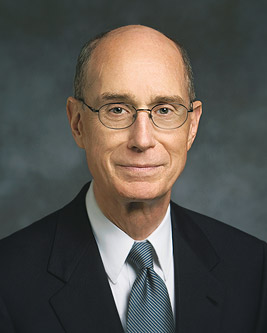 Bind Up Their Wounds
Bind Up Their Wounds
You and the priesthood bearers you are called to lead can have at least three assurances. First, the Lord will give you, if you ask, the feelings of compassion He feels for those in need. Second, He will provide others, like the innkeeper, to join with you in your service. And third, the Lord, like the good Samaritan, will more than recompense all who join in giving help to those in need. You quorum presidents likely have acted on those assurances more than once. You asked others of the Lord’s priesthood to help, with confidence that they would respond with compassion. You were not afraid to ask those who have responded most often in the past because you knew that they feel compassion easily. You asked them, knowing that in the past they have felt the Lord’s generosity when they chose to help. You asked some already heavily burdened, knowing that the greater the sacrifice, the greater the compensation they will receive from the Lord. Those who have helped in the past have felt the overflowing gratitude of the Savior. You may well have been inspired not to ask someone to help load and then unload that truck. As a leader you know your quorum members and their families well. The Lord knows them perfectly. He knows whose wife was near the breaking point because her husband was unable to find time to do what she needed done to care for her needs. He knows which children would be blessed by seeing their father go one more time to help others or if the children needed the feeling that they matter to their father enough for him to spend time with them that day. But He also knows who needs the invitation to serve but might not appear to be a likely or willing candidate. You cannot know all your quorum members perfectly well, but God does. So, as you have done so many times, you prayed to know whom to ask to help serve others. The Lord knows who will be blessed by being asked to help and whose family will be blessed by not being asked. That is the revelation you can expect to come to you as you lead in the priesthood.
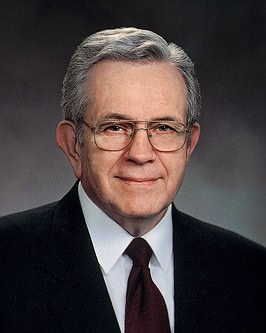 The Bishop and His Counselors
The Bishop and His Counselors
The bishop is “to judge his people by the testimony of the just, and by the assistance of his counselors, according to the laws of the kingdom which are given by the prophets of God.” He is to judge them as to their worthiness to receive the ordinances and serve in offices. He is to counsel and correct and to preach the gospel to his flock, individually and collectively. In all of this, he is to teach the gospel of Jesus Christ, the Crucifixion, the Atonement, the Resurrection, the Restoration. I have heard this described as voluntary service because neither the bishop nor his counselors are paid for what they do. They too pay their tithes and offerings, and they devote endless hours to their calling. They are paid only in blessings, as are those who serve with them. But one does not exactly volunteer or aspire to be bishop. He is called to be bishop, “called of God, by prophecy.” Then he is both ordained and set apart “by the laying on of hands by those who are in authority, to preach the Gospel and administer in the ordinances thereof.” A man is ordained a bishop, an office in the priesthood; then he is set apart and given the keys to preside over a ward. He with his two counselors form a bishopric—a type of presidency. Once ordained, he is a bishop for the rest of his life. When he is released from presiding over a ward, his ordination becomes dormant. If called again to preside over a ward, his previous ordination is reactivated. When he is released, it becomes dormant again. Inherent in the ordination to be bishop is both the right and the obligation to be directed by inspiration. The bishop has the power to discern by the Spirit what he is to do. Revelation is the one credential that all bishops have in common. Bishops come from many cultures, many occupations. They vary in experience, personality, and age, but they do not differ in their right to be guided spiritually.
 Finding Safety in Counsel
Finding Safety in Counsel
There seems to be no end to the Savior’s desire to lead us to safety. And there is constancy in the way He shows us the path. He calls by more than one means so that it will reach those willing to accept it. And those means always include sending the message by the mouths of His prophets whenever people have qualified to have the prophets of God among them. Those authorized servants are always charged with warning the people, telling them the way to safety. When tensions ran high in northern Missouri in the fall of 1838, the Prophet Joseph Smith called for all the Saints to gather to Far West for protection. Many were on isolated farms or in scattered settlements. He specifically counseled Jacob Haun, founder of a small settlement called Haun’s Mill. A record of that time includes this: “Brother Joseph had sent word by Haun, who owned the mill, to inform the brethren who were living there to leave and come to Far West, but Mr. Haun did not deliver the message”. Later, the Prophet Joseph recorded in his history: “Up to this day God had given me wisdom to save the people who took counsel. None had ever been killed who [had abided] by my counsel”. Then the Prophet recorded the sad truth that innocent lives could have been saved at Haun’s Mill had his counsel been received and followed. In our own time, we have been warned with counsel of where to find safety from sin and from sorrow. One of the keys to recognizing those warnings is that they are repeated. For instance, more than once in these general conferences, you have heard our prophet say that he would quote a preceding prophet and would therefore be a second witness and sometimes even a third. Each of us who has listened has heard President Kimball give counsel on the importance of a mother in the home and then heard President Benson quote him, and we have heard President Hinckley quote them both. The Apostle Paul wrote that “in the mouth of two or three witnesses shall every word be established”. One of the ways we may know that the warning is from the Lord is that the law of witnesses, authorized witnesses, has been invoked. When the words of prophets seem repetitive, that should rivet our attention and fill our hearts with gratitude to live in such a blessed time.
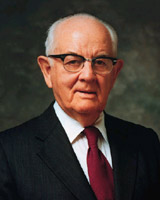 Give the Lord Your Loyalty
Give the Lord Your Loyalty
I assure you that all Church standards, both those relating to moral conduct and those relating to dress and grooming, are the result of intense, prayerful consideration by Church leaders. Young adults whose clean and wholesome appearance demonstrates that they feel no need to follow after the pattern of the world—which often revels in filth and disorder and garish fads—and young men and young women who look like men and women, who have not succumbed to the morally destructive trend toward identical dress and grooming for both men and women, are people living cheerful, orderly lives., devoted to improving their ability to serve God and their fellowmen. . . Perfection is our goal, but we all still have a long way to go to obtain perfection. Maintain your integrity and seek to live by the Spirit. Keep all the commandments, so that you will one day stand blameless before God. Give the Lord this year and every year your faith and loyalty, that he may look with pleasure upon what you have done. Loyalty to the Lord also includes loyalty to those leaders he has chosen. I know that those whom the Lord has called to lead his children in this dispensation of time receive divine inspiration. My grandfather sat in the first Quorum of the Twelve; my father served as mission president and stake president in a much smaller church than we have today under five presidents of the Church; I have served as a stake officer and General Authority for sixty-one years. Our three lives have encompassed essentially the whole period of the restored Church; taken together, we have known with some intimacy almost all the General Authorities since the Restoration. On that basis I tell you that those Church leaders were men whose great accomplishments have gone beyond their great natural abilities, for the Lord has given them power to do his work.
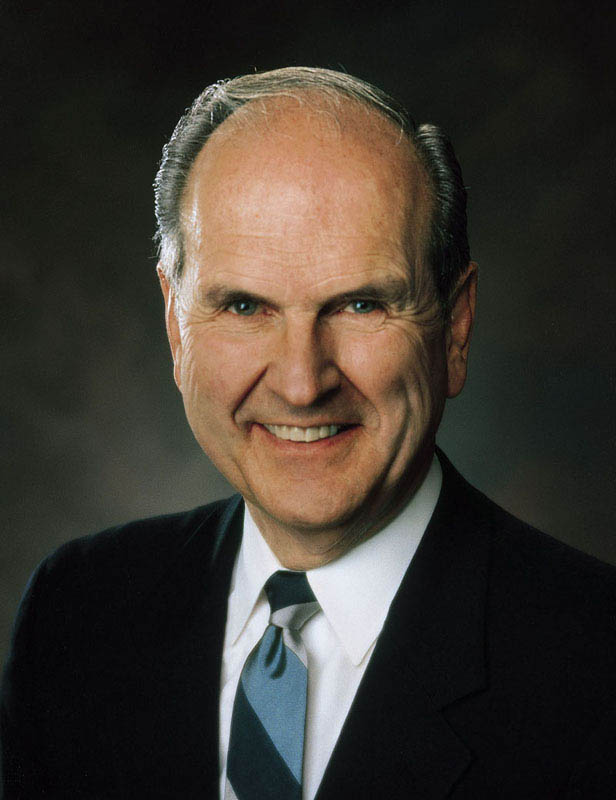 Honoring the Priesthood
Honoring the Priesthood
Differences exist in practice and organization between the Lord’s Church and man-made institutions. Men and women may form associations for and among themselves and be governed by stipulations that are mutually acceptable. The Church of Jesus Christ of Latter-day Saints, however, is neither a democracy nor a republic. His is a kingdom—the kingdom of God on earth. His is a hierarchical church, with ultimate authority at the top. The Lord directs His anointed servants. They testify to all the world that God has again spoken. The heavens have been opened. A living linkage has been formed between heaven and earth in our day. That supreme authority is supported by a firm foundation following an organizational pattern established anciently. Jesus Christ is the chief cornerstone, with Apostles and prophets and all the gifts, powers, and blessings that characterized the Church in earlier days. Secular and spiritual institutions have differing patterns of leadership. Man-made organizations are governed by officers with titles that designate rank or accomplishment. A military officer, judge, senator, doctor, or professor is properly addressed by title. We appropriately honor individuals who have attained such positions. In contrast, the kingdom of God is governed by the authority of the priesthood. It is not conferred for honor, but for a ministry of service. Priesthood titles are not created by man; neither are they for adornment, nor do they express mastership. They denote appointment to service in the work of the Lord. We are called, sustained, and ordained—not by ourselves, but “by prophecy, and by the laying on of hands by those who are in authority, to preach the Gospel and administer in the ordinances thereof.” Titles pertaining to the holy priesthood deserve our utmost care and respect.
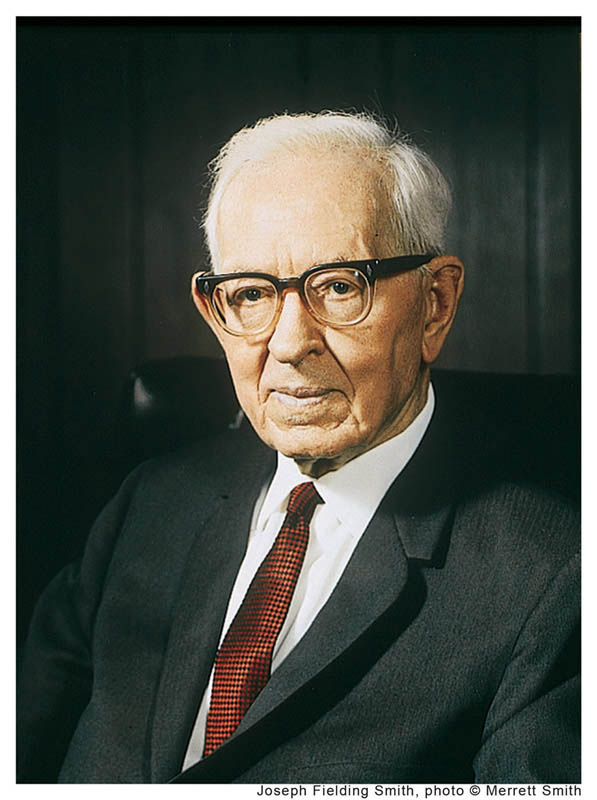 The Rein of Responsibility and Leadership
The Rein of Responsibility and Leadership
I desire to say that no man of himself can lead this church. It is the Church of the Lord Jesus Christ; he is at the head. The Church hears his name, has his priesthood, administers his gospel, preaches his doctrine, and does his work. He chooses men and calls them to be instruments in his hands to accomplish his purposes, and he guides and directs them in their labors. But men are only instruments in the Lord’s hands, and the honor and glory for all that his servants accomplish is and should be ascribed unto him forever. If this were the work of man, it would fail, but it is the work of the Lord, and he does not fail. And we have the assurance that if we keep the commandments and are valiant in the testimony of Jesus and are true to every trust, the Lord will guide and direct us and his church in the paths of righteousness, for the accomplishment of all his purposes. Our faith is centered in the Lord Jesus Christ, and through him in the Father. We believe in Christ, accept him as the Son of God, and have taken his name upon us in the waters of baptism, and are his sons and his daughters by adoption. I rejoice in the work of the Lord and glory in the sure knowledge I have in my soul of its truth and divinity!
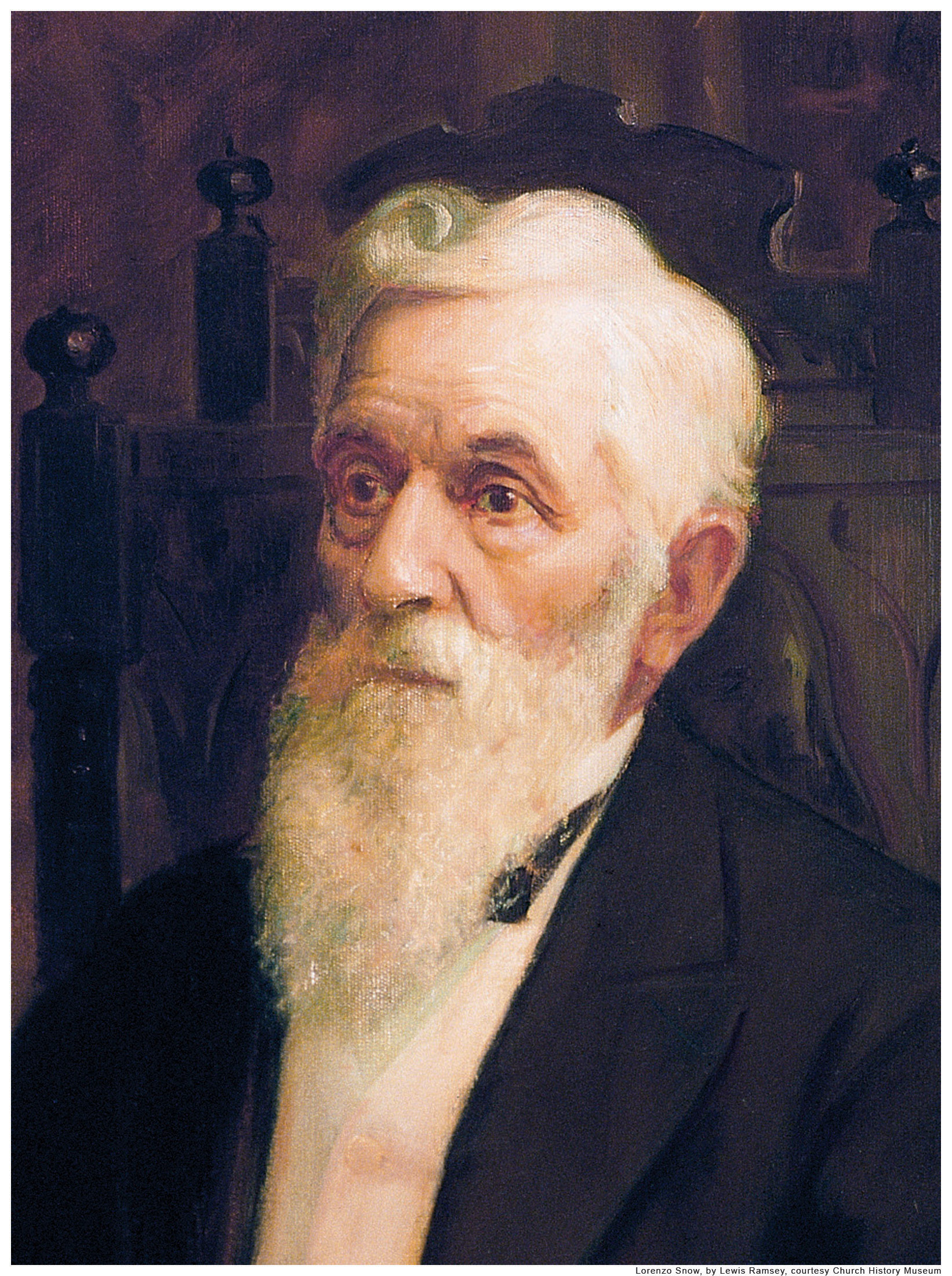 Sacred Responsibilities
Sacred Responsibilities
I want to say a few words in reference to one particular subject. and I do not want what I shall say to be forgotten. It is a matter that concerns all the Saints; you are all interested in it, and especially the Presidents of Stakes, their counselors, the High Councilors, the Bishops and their counselors, and all those who have been appointed to hold certain portions of the Holy Priesthood and to be actively engaged in the various Stakes of Zion. There are now fifty Stakes of Zion and these Stakes are composed of several wards. On an average there are probably seven or eight wards to each Stake. Over each Stake there are a president and two counselors and twelve High Councilors. Then there are Bishops and counselors over the respective wards. And now, what responsibilities rest upon the officials of these fifty Stakes; The dominion of the Latter-day Saints, to a large extent, and the highest and most sacred responsibilities are depending upon these fifty presidents; and there is something to do for each of these authorities that I have mentioned. The most extensive and important responsibilities devolve upon these officials. And although, I doubt not, they have been pretty faithful in the past, they have not been so faithful in some respects, as they ought to have been; they have not realized their sacred responsibilities so much as they might have done. This Church is now nearly seventy two years of age, and we are not expected to do the work of the days of our youth, but to do greater, larger and more extensive work. The Lord is coming one of these days, and He is interested in the work that you ought to be doing, and anxious to be doing. You ought to do all that you possibly, can, and leave everything in your business affairs that you wisely can do and attend to these matters. The presidents of these fifty Stakes should consider the people in their respective Stakes, in their various dominions. They should regard them as their own family, as their sons and daughters; and take as deep an interest in them as they ought to take in their own wives and children. It should be their thought by day and by night, how and in what way they can be most serviceable to their respective charges. Oh! brethren, do remember these things that I am now talking about; do not forget them.
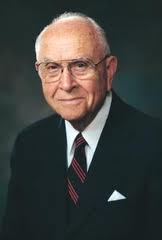 Solemn Assemblies
Solemn Assemblies
A solemn assembly, as the name implies, denotes a sacred, sober, and reverent occasion when the Saints assemble under the direction of the First Presidency. Solemn assemblies are used for three purposes: the dedication of temples, special instruction to priesthood leaders, and sustaining a new President of the Church. This conference session today is a solemn assembly for the purpose of sustaining a newly called Church President and other officers of the Church. There is a pattern to solemn assemblies that distinguishes them from other general Church meetings where we sustain officers of the Church. That pattern, which was established by the Prophet Joseph Smith, is that the priesthood quorums, commencing with the First Presidency, stand and manifest by the uplifted right hand their willingness to sustain the President of the Church as a prophet, seer, and revelator, and uphold him by their confidence, faith, and prayers. The priesthood quorums of the Church so manifest by their vote. Then the general body of all the Saints stand and signify their willingness to do the same. The other leaders of the Church are similarly sustained in their offices and callings. When we sustain the President of the Church by our uplifted hand, it not only signifies that we acknowledge before God that he is the rightful possessor of all the priesthood keys; it also means that we covenant with God that we will abide by the direction and the counsel that come through His prophet. It is a solemn covenant.
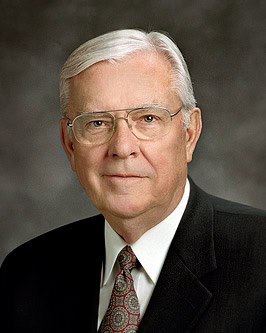 Stay in the Boat and Hold On!
Stay in the Boat and Hold On!
Our local Church leaders, like seasoned river guides, have been tutored by life’s experiences; have been trained and mentored by apostles and prophets and other officers of the Church; and, most important, have been tutored by the Lord Himself. On another occasion this year, I spoke to the young adults of the Church in the May CES devotional broadcast. I said: “I have heard that some people think the Church leaders live in a ‘bubble.’ What they forget is that we are men and women of experience, and we have lived our lives in so many places and worked with many people from different backgrounds. Our current assignments literally take us around the globe, where we meet the political, religious, business, and humanitarian leaders of the world. Although we have visited [leaders in] the White House in Washington, D.C., and leaders of nations [and religions] throughout the world, we have also visited the most humble [families and people] on earth. … “When you thoughtfully consider our lives and ministry, you will most likely agree that we see and experience the world in ways few others do. You will realize that we live less in a ‘bubble’ than most people. … “… There is something about the individual and combined wisdom of the [Church leaders] that should provide some comfort. We have experienced it all, including the consequences of different public laws and policies, disappointments, tragedies, and deaths in our own families. We are not out of touch with your lives.”
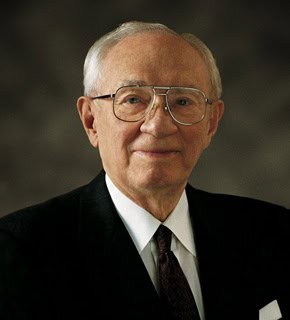 This Thing Was Not Done in a Corner
This Thing Was Not Done in a Corner
‘Only men’ do not run the Church. Men have their place in the Church. Men hold priesthood offices of the Church. But women have a tremendous place in this church. They have their own organization. It was started in 1842 by the Prophet Joseph Smith, called the Relief Society, because its initial purpose was to administer help to those in need. It has grown to be, I think, the largest women’s organization in the world with a membership of more than three million. They have their own offices, their own presidency, their own board. That reaches down to the smallest unit of the Church everywhere in the world. . . They have office. They have responsibility. They have control of their organization. . . The men hold the priesthood, yes. But my wife is my companion. In this Church the man neither walks ahead of his wife nor behind his wife but at her side. They are co-equals in this life in a great enterprise.
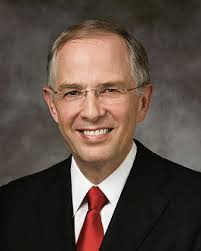 Trial of Your Faith
Trial of Your Faith
A few question their faith when they find a statement made by a Church leader decades ago that seems incongruent with our doctrine. There is an important principle that governs the doctrine of the Church. The doctrine is taught by all 15 members of the First Presidency and Quorum of the Twelve. It is not hidden in an obscure paragraph of one talk. True principles are taught frequently and by many. Our doctrine is not difficult to find. The leaders of the Church are honest but imperfect men. Remember the words of Moroni: “Condemn me not because of mine imperfection, neither my father … ; but rather give thanks unto God that he hath made manifest unto you our imperfections, that ye may learn to be more wise than we have been.” Joseph Smith said, “I never told you I was perfect; but there is no error in the revelations.” The miracle of God’s hand in the history and destiny of The Church of Jesus Christ of Latter-day Saints is understood only through the lens of spiritual inquiry. President Ezra Taft Benson said, “Every [person] eventually is backed up to the wall of faith, and there … must make his stand.” Don’t be surprised when it happens to you! By definition, trials will be trying. There may be anguish, confusion, sleepless nights, and pillows wet with tears. But our trials need not be spiritually fatal. They need not take us from our covenants or from the household of God.
 The True and Living Church
The True and Living Church
Now our obligation is to remain worthy of the faith necessary for us to fulfill our promise to sustain those who have been called. The Lord was well pleased with the Church at the beginning of the Restoration, as He is today. But He cautioned the members then, as He does now, that He cannot look upon sin with the least degree of allowance. For us to sustain those who have been called today, we must examine our lives, repent as necessary, pledge to keep the Lord’s commandments, and follow His servants. The Lord warns us that if we do not do those things, the Holy Ghost will be withdrawn, we will lose the light which we have received, and we will not be able to keep the pledge we have made today to sustain the Lord’s servants in His true Church.
 The Unwritten Order of Things
The Unwritten Order of Things
I will be speaking about what I call the “unwritten order of things.” My lesson might be entitled “The Ordinary Things about the Church Which Every Member Should Know.” Although they are very ordinary things, they are, nevertheless, very important! We somehow assume that everybody knows all the ordinary things already. If you do know them, you must have learned them through observation and experience, for they are not written anywhere and they are not taught in classes. So, as we continue, if you are ones that know it all, be patient while I teach those who do not–and take a nap. The basic foundation of knowledge and testimony never changes–the testimony that God the Father lives, that Jesus is the Christ, that the Holy Ghost inspires us, that there has been a restoration, that the fullness of the gospel and the same organization that existed in the primitive church have been revealed to us. Those things are taught everywhere and always–in our classes, the scriptures, the handbooks and the manuals–in everything we do. The fundamental doctrine and instructions on the organization of the Church are likewise found in the scriptures. In addition, there is another source of knowledge relating to what makes the Church work: We learn from experience and observation. If you learn about these things that are not written down, the unwritten order of things, you will be better qualified to be a leader–and you are going to be a leader. The most important positions of leadership are in the home–the father, mother, wife, husband, older brother and sister. Then, in the Church, positions of leadership and teaching opportunities are available as nowhere else on earth.
 What Every Elder Should Know – and Every Sister as Well: A Primer on Principles of Priesthood Government
What Every Elder Should Know – and Every Sister as Well: A Primer on Principles of Priesthood Government
In the Church we do not assume authority belonging to either an ordained or a set apart office or calling. We must be called to a position and sustained, be ordained or set apart and given authority. The fifth Article of Faith says, “We believe that a man must be called of God, by prophecy, and by the laying on of hands by those who are in authority, to preach the Gospel and administer in the ordinances thereof.” Every elder should know that a call is more than an invitation or a request, even more than an assignment. Too frequently we hear such expressions as, “I have been asked to serve as a counselor in the elders quorum presidency.” It would be more proper to say, “I have been called to serve as a counselor.” We do not call ourselves to offices in the Church. Rather we respond to the call of those who preside over us. It is the responsibility of those who preside to prayerfully consult the Lord as to His will concerning a position in the Church. Then the principle of revelation is at work. The call is then delivered by the presiding officer who is acting for the Lord. We do not, under ordinary circumstances, refuse a call. Neither do we ask for a release beyond calling to the attention of the presiding officer circumstances which may make a release advisable. When we refer to those who have been called to a presiding position by the title of their office such as bishop or president, it lends dignity to the office and reminds the one holding it of his sacred responsibility and it reminds us of our obligation to follow their counsel and respond to their calls.
